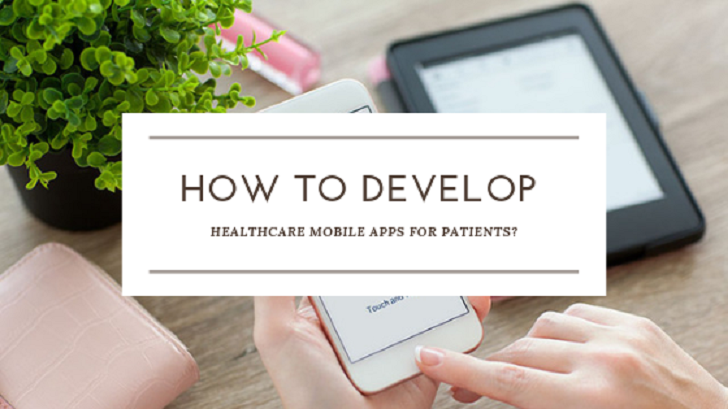
How to Develop Healthcare Mobile Apps for Patients?
While everything else is available on your fingertips, how can healthcare industry stay away from that? With the advancement and growing trends of mobile application about a decade ago, 30% of medical professionals were using mobile apps. But things are entirely different now, almost 85% of healthcare practitioners are making use of web and mobile apps.
To develop a healthcare mobile application for patients, the developers have to bear a deep understanding. It is not similar to developing a normal mobile app. You need to first understand the requirement and the purpose of the application from the doctor before working on it.
For the development of a well acceptable healthcare application keep in mind the tips discussed below.
Tips and Tricks to Develop Healthcare Mobile Applications:
Platform:

As a developer, you might wish to target different platforms including a desktop, smartphone and tablet etc. There is no bad in having an application that can work perfectly on different hardware but you need to target the hardware as per the purpose. For eg: if you are designing ‘Call a Doctor’ app it will be more in use over smartphones at the same time ‘Patient Engagement Solution’ applications are more likely to be used on tablets. So go for a platform as per the purpose.
UI/UX:
UI/UX is something to be considered on a serious note while developing a healthcare application. The specific reason is that both the patients and doctors enter the data in the application to put up the queries or if you look another way round then to provide a solution. So all the fonts, colour, sizes or images(if any) must be in complete synchronisation without leaving any negative impression.
API:
API or Application Programming Interface is a tool that is used to perform a unique or particular task. It is basically designed for interaction with the module or software. It plays an important role when you connect the application with social networking applications to retrieve and store the information continuously. Provide the desired authentication using API.
Data Security:

When it is about healthcare or clinical interactions with patients, the processing may be time-consuming. In such cases, all the requests cannot be processed in a go and some of them need to be saved. API in such cases require the information to be saved on the App server. So, do not just save the data but also provide the encryption for data security.
The healthcare queries may be personal and in such cases the patient expects privacy. Also, the doctor database requires to be saved securely. As long as patients do not get the confirmation about the security they won’t be considering the reliability of the application. So maintaining data security is an important factor for healthcare mobile applications
Testing Applications:

Testing of the developed mobile application is equally important just like the development. Make sure before you hand over the application to the practitioner you test it on concerned devices and platforms. You must check the robustness and performance.
Again it is important in order to maintain the confidential part of the healthcare industry. Neither doctor nor patient can compromise over the same. If the application is designed for cross-platform consider checking it on all the platforms.
Verdict:
The top-notch developers not only design mobile application but ensure its working without interruption. Keep the above important aspects in mind while you are designing the mobile application for medical or healthcare department. Make sure you portray a perfect blend of both the industries that is science and technology.




